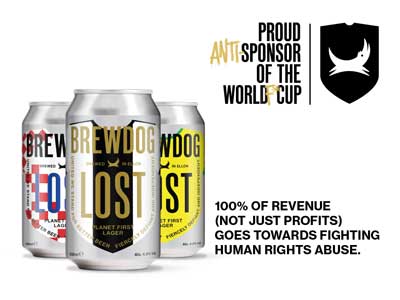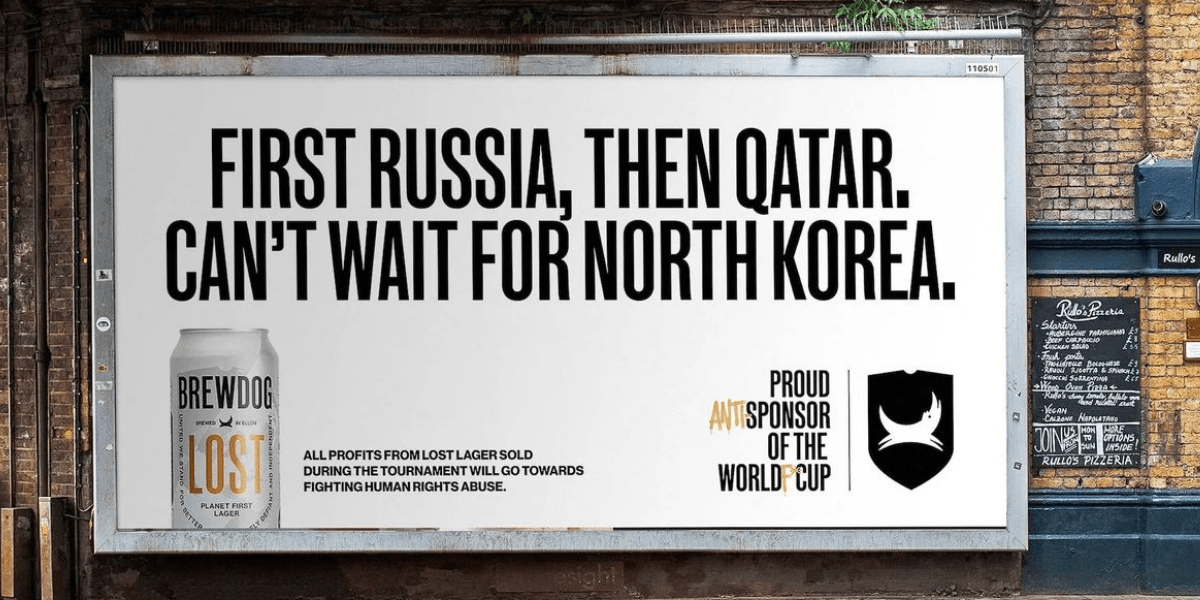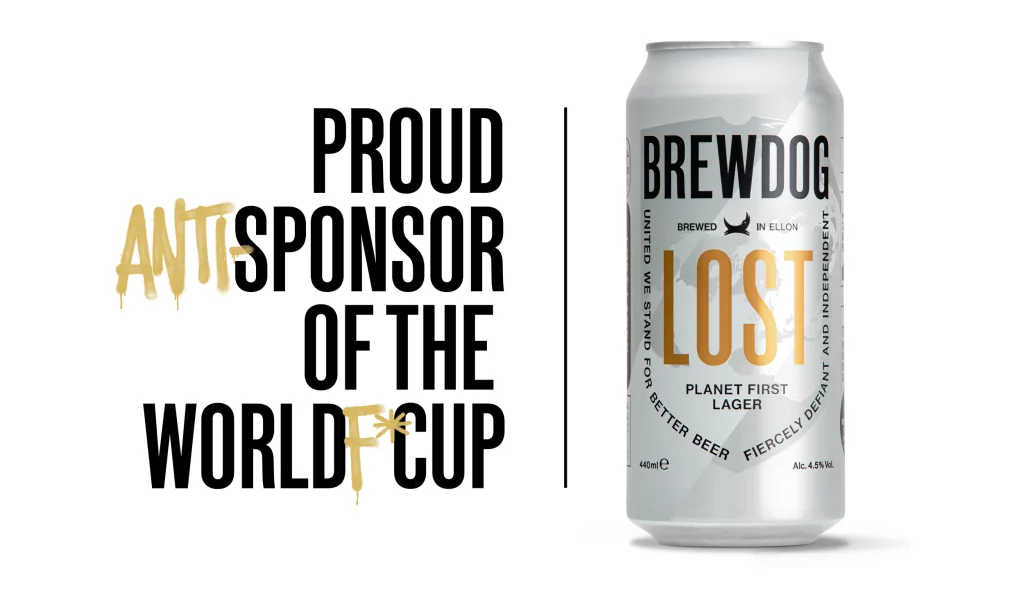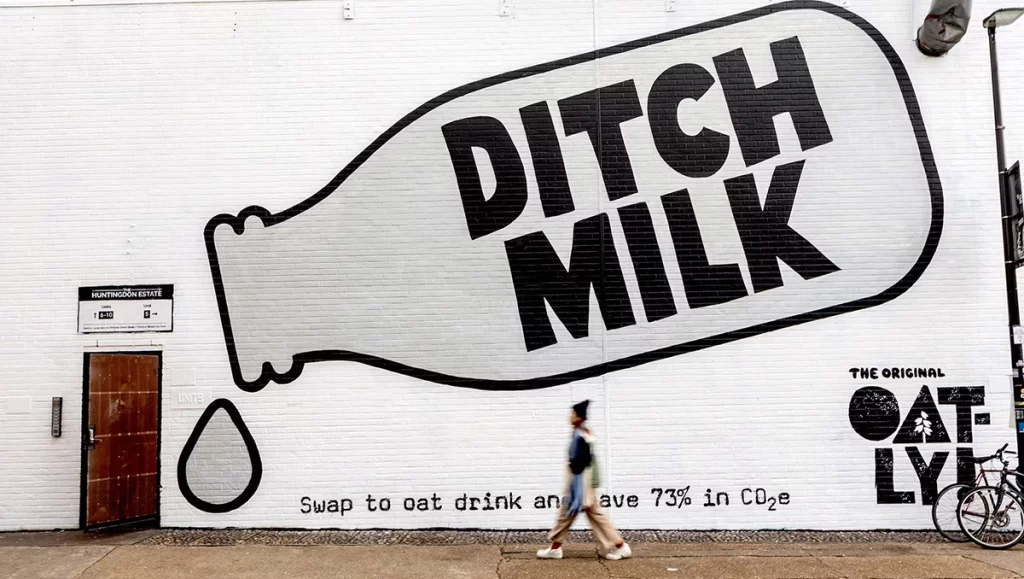Introduction.
Purpose-driven marketing has become one of the most influential trends of the past decade. Brands are no longer judged solely on their products, but on what they stand for. Done well, purpose-driven marketing can inspire trust, build loyalty, and drive meaningful social change. Done poorly, it risks damaging reputation and eroding credibility.
At TMLA, we believe in marketing as a force for good. Purpose must be more than a slogan – it has to run through a brand’s culture, decisions, and everyday actions. BrewDog’s World Cup “anti-sponsor” campaign offers a clear example of both the potential and pitfalls of this approach.

The anti-sponsor campaign.
For the 2022 Qatar World Cup, BrewDog launched a bold campaign positioning itself as the tournament’s “anti-sponsor.” Adverts condemned FIFA for corruption and Qatar for its human rights record, particularly around LGBTQ+ rights and the treatment of migrant workers.
The campaign was designed to shock. Billboards declared BrewDog as the “proud anti-sponsor of the World F*Cup,” cutting through the noise of traditional sponsor messaging with blunt, provocative language. It grabbed headlines across mainstream media and went viral on social platforms, sparking debate far beyond the beer industry.
 BrewDog also pledged to donate revenue from its Lost Lager to human rights charities, framing the campaign as more than just words. By linking consumer purchases to social impact, it invited drinkers to take part in the protest through everyday choices.
BrewDog also pledged to donate revenue from its Lost Lager to human rights charities, framing the campaign as more than just words. By linking consumer purchases to social impact, it invited drinkers to take part in the protest through everyday choices.
Creatively, the campaign was brilliant. It leveraged satire, subversion, and a global cultural moment to reinforce BrewDog’s challenger identity. At a time when official sponsors were criticised for silence, BrewDog positioned itself as a voice for justice, capitalising on public discontent with both FIFA and Qatar. On the surface, this looked like a textbook example of brand activism: using a global stage to highlight serious issues and differentiate the brand through bold values-led communication.
Contradictions and backlash.
For all its creative brilliance, the campaign quickly ran into problems. Investigations revealed that while BrewDog was condemning the World Cup in the UK, it was still selling its products in Qatar through distribution partners. Critics argued this undermined the brand’s stance and made the campaign look opportunistic rather than authentic.
Employee unions also spoke out, pointing to an ongoing mismatch between BrewDog’s public commitments to ethics and its reported workplace culture. The “anti-sponsor” message, designed to spotlight injustice, drew attention back to the company’s own unresolved issues.
The backlash was amplified by media outlets and on social platforms, where accusations of hypocrisy overshadowed the initial creative impact. What began as a powerful activist statement ended up dividing opinion. For some, it reinforced BrewDog’s rebellious spirit; for others, it revealed the danger of purpose-driven marketing when a brand’s actions don’t fully align with its message.

The bigger picture: Campaign vs. commitment.
The anti-sponsor campaign highlights a broader challenge for purpose-driven marketing. When brands treat purpose as a campaign tactic rather than a long-term commitment, they risk accusations of “purpose-washing.” In BrewDog’s case, the message was powerful, but the actions didn’t fully support it.
Purpose cannot be borrowed for a single moment or tied to a single campaign. It must be integrated into how a business operates – from employee culture to supply chains and partnerships. Without that depth, even the boldest campaigns can ring hollow.
Our perspective.
At TMLA, we are passionate about purpose-driven marketing because we’ve seen its power to shape culture and drive positive change. But for purpose to be credible, it must be lived consistently. That means aligning brand values with internal culture, ensuring employees feel supported, and making business decisions that reflect the causes you promote.
The lesson from BrewDog is not that brands should avoid activism. It’s that purpose-driven campaigns must be rooted in authenticity. Consumers expect transparency. Employees expect integrity. Anything less risks being exposed as marketing spin.
Takeaway.
BrewDog’s anti-sponsor campaign shows both the potential and the risks of purpose-driven marketing. It demonstrated how bold, values-led campaigns can spark debate and strengthen brand identity. But it also revealed how quickly trust can erode when actions don’t fully support words.
For marketers, the message is clear: purpose is powerful but fragile. To be credible, it must run through every part of the business – from culture to operations and campaigns. Only then can brands build the authenticity needed to inspire lasting trust and meaningful impact.




